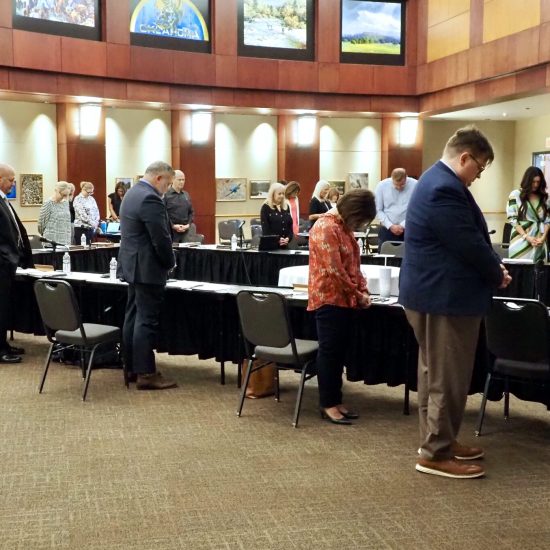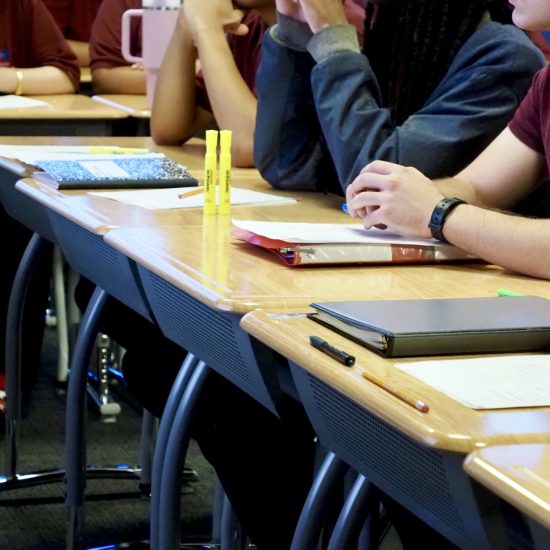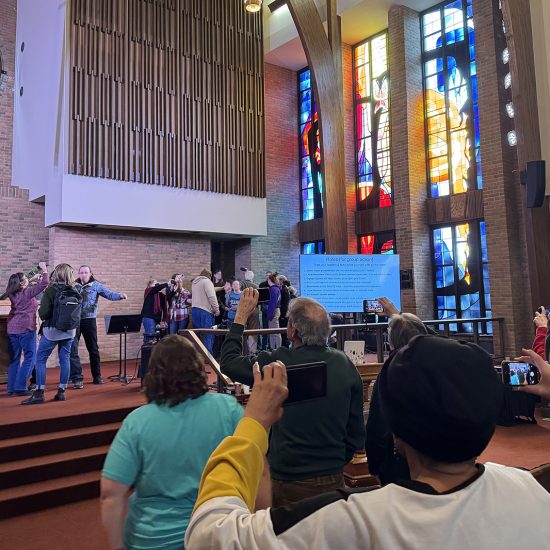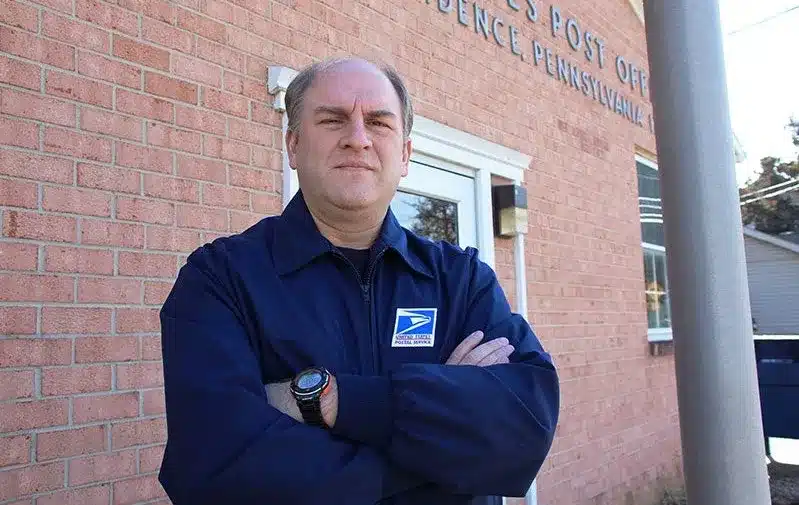
A key moment in the 1992 movie School Ties features prayer. An exclusive Christian prep school recruited a Jewish teenager, played by Brendan Fraser, to attend in hopes of helping them win football games. But he keeps his identity a secret from his classmates because of antisemitism — which leads to a plot development you probably see coming in the ensemble cast of future stars like Matt Damon, Chris O’Donnell, and Ben Affleck.
As the quarterback, Fraser’s character leads the school to a thrilling victory and then sneaks into the school’s chapel that night to offer belated prayers for the Jewish holy day Rosh Hashanah. The school’s headmaster, who knows his secret, sees him. In the story by Dick Wolf, the two politely challenge each other’s priorities and understanding of faith. Sending the student back to his room with just a warning for breaking the rule about sneaking around campus after hours, the headmaster asks, “Was it worth it? Breaking a tradition just to win a football game?” Having been let into the school to win games, the student quips, “Your tradition or mine, sir?”
The fictional moment raises an issue that real-life athletes and employees have wrestled with: how to keep Sabbath when it doesn’t fit the competition or work schedule. This tension even led to a lawsuit that the U.S. Supreme Court will hear next week.
Although lower courts have ruled in Groff v. DeJoy against the former U.S. Postal Service employee who sought a religious exemption from making Sunday deliveries, the justices of the nation’s highest court might instead look favorably on his religious claims. If so, they could reverse a ruling that’s made it difficult for employees for nearly half a century to obtain exemptions for Sabbath observance or other religious exercises.
With the issue of honoring the Sabbath coming to the Supreme Court on Tuesday (April 18), this issue of A Public Witness will preview the case and explore the issue of Sabbath observance as something more than just attending church, having a nice meal, and watching a game on TV.
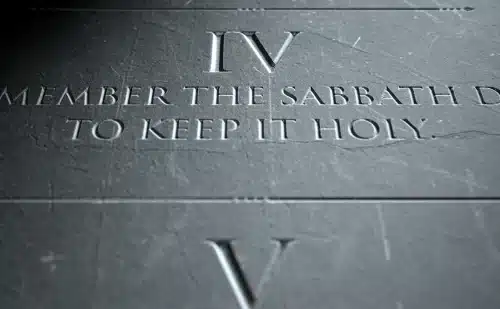
Litigating the Sabbath
The 1964 Civil Rights Act is best known for its provisions targeting racial segregation, but the landmark legislation was amended in 1972 to also make it unlawful for an employer to discriminate against an employee because of their religion. That protection, however, was severely throttled by the Supreme Court in 1977. In that case, the justices ruled against a Christian who observed Sabbath on Saturday and sued Trans World Airline after it transferred him to a role where he would have to work on Saturdays.
The Equal Employment Opportunity Commission required employers to “reasonably accommodate” religious practices of employees as long as it didn’t cause “undue hardship” for the company. But the justices in 1977 defined that hardship level as “more than a de minimis” burden. It would seem like there’s a lot of territory between a trivial burden and undue hardship. It’s akin to defining someone as “rich” if their income is above the poverty level. Thus, many religious liberty advocates have been pushing for a better standard. Now they might get their chance.
Gerald Groff is an evangelical Christian who says he observes a Sabbath day of not working on Sundays. Although as a Christian he’s part of the dominant religious tradition in the U.S., his position of centering Sabbath to his faith makes him an outlier. For instance, Pew Research Center found in 2016 that only 18% of Christians said resting on the Sabbath was an essential part of their faith.
When Groff started working for the U.S. Postal Service in 2012, they didn’t deliver on Sundays, so his Sabbath observance wasn’t an issue. Of course, the reason they didn’t was because it was the Sabbath day of most Americans — which has raised complaints over the years that the government was unconstitutionally prioritizing one faith’s Sabbath over others.
But then came Amazon. In late 2013, USPS started delivering packages for the website on Sundays. Groff’s position didn’t qualify for the USPS’s new religious exemption policy about Sunday deliveries, so he transferred to a smaller post office that wasn’t doing Amazon deliveries. However, that changed in 2017. Over the next two years, he unsuccessfully sought exemptions and claimed he was mistreated for refusing to deliver on Sundays. He resigned in 2019 ahead of a likely termination and sued the USPS.
After the lower courts ruled against him, his case heads to the Supreme Court with the key question centering on if a de minimis burden is the correct standard.
“There should be some weighing of the difficulty and expense on the employer before the employer is released of its duty to accommodate the employee,” Holly Hollman, general counsel for Baptist Joint Committee for Religious Liberty, argued in an episode of Respecting Religion. “The standard for undue hardship should include significant difficulty or expense. Significant difficulty or expense, not just some minimal impact.”
So BJC joined an amicus brief with a diverse array of religious groups urging the justices to side with Groff and adopt a better standard of what constitutes an “undue burden.” Among those joining BJC are the Church of Jesus Christ of Latter-day Saints, the U.S. Conference of Catholic Bishops, the Ethics & Religious Liberty Commission of the Southern Baptist Convention, and the Anti-Defamation League. Others also filed briefs supporting Groff, including Hindu, Jewish, Muslim, and Sikh groups.

Gerald Groff. (First Liberty Institute)
Some court watchers have raised concerns about the possibility of the justices going too far and penning a broad ruling that empowered managers to invoke their religious beliefs to discriminate against employees or customers. While that is a legitimate concern considering the current majority’s poor record on church-state establishment issues, the issue of employment law regarding free exercise also needs a standard that protects religious practices of employees.
Alan Reinach, the lead trial counsel for Groff and the executive director of the Church State Council (a religious liberty ministry of the Pacific Union Conference of Seventh-day Adventists), told me it’s important to have laws to protect “equal employment opportunities so they don’t have to leave their faith at home when they go to work.”
“People of all different faiths experience conflicts between their religious beliefs and practices and job requirements. Mostly they fall into either two categories: scheduling or dress and appearance issues,” he explained. “If you think about it, that affects nearly everybody. Many people have commitments, whether it’s for a weekly Bible study, choir practice, church service, Sabbath observance, religious holiday, or, on the other hand, they wear a yarmulke, they wear a head covering, they wear a beard. And any one of a number of faith practices can run afoul of job duties.”
Reinach added that he’s “sanguine about the prospects” of the case going into oral arguments, especially if the justices look at what the text of the statute says instead of the earlier ruling that redefined the level of hardship. And perhaps it’s fitting that the case that could reset more than four decades of jurisprudence is, like the 1977 case, about Sabbath observance.
Sabbath Competition
The rest of this piece is only available to paid subscribers of the Word&Way e-newsletter A Public Witness. Subscribe today to read this essay and all previous issues, and receive future ones in your inbox.





